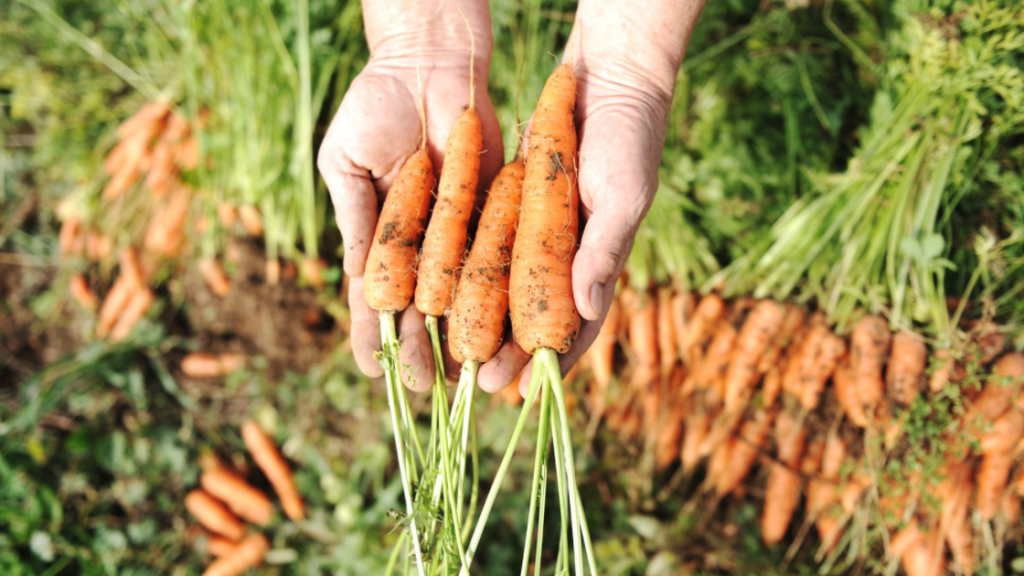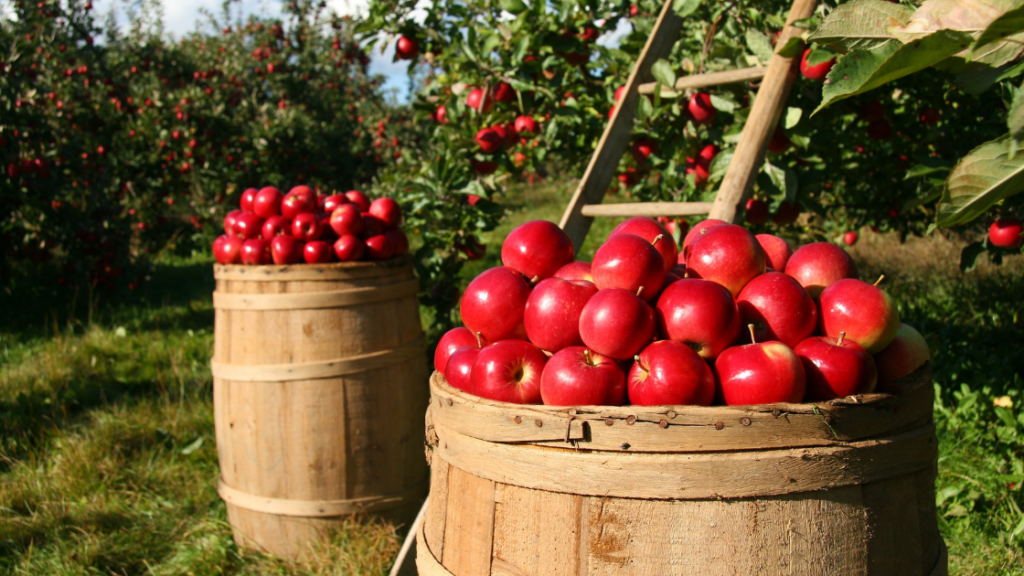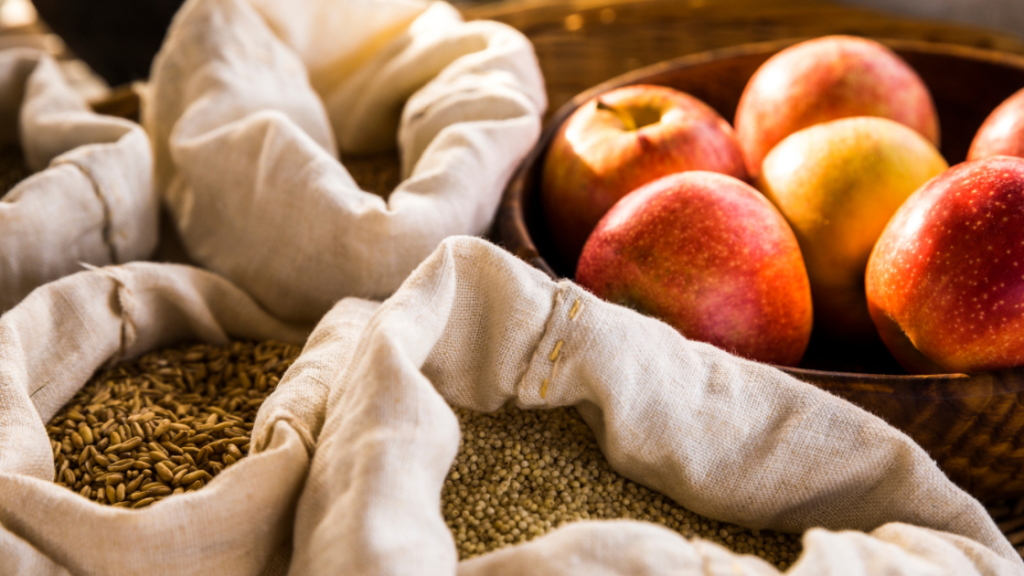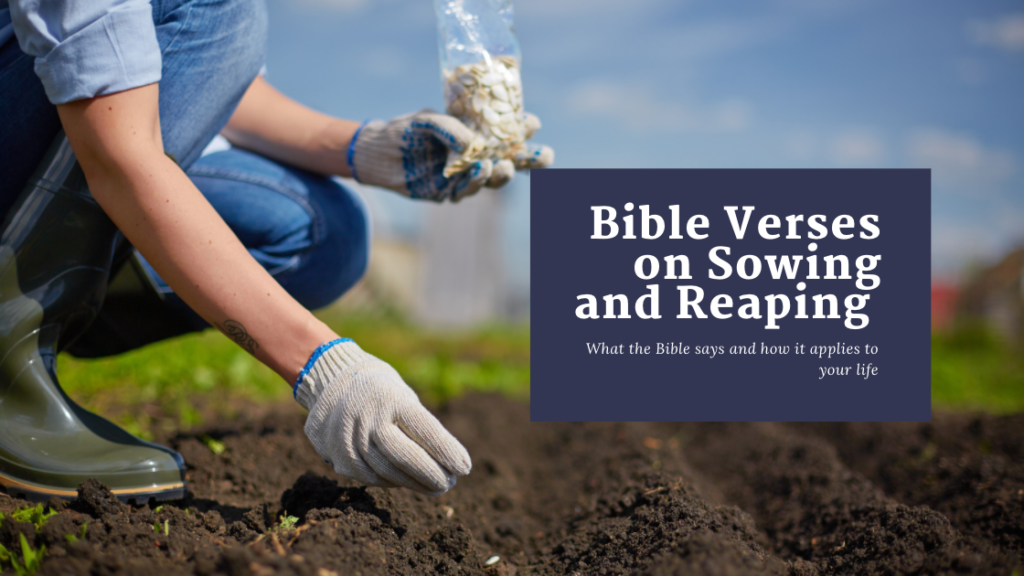Table of Contents
- Which bible verses talk about sowing and reaping
- 1. We reap what we sow
- 2. Harvest is always more than the seed
- 3. Harvest comes much later in the future
- 4. We harvest in proportion to what we plant
- 5. Sowing and reaping is God’s immutable law
- Principles for life
Which bible verses talk about sowing and reaping
Have you heard of gaming mystery boxes? The premise is, you pay a certain amount and if you’re lucky, the content of the box is worth 10x of your initial cost, but most of the time you get nothing of value. I read in the news about a teenager spending $20,000 of his parents money on these mystery boxes.
The principle of sowing and reaping is the exact opposite of mystery boxes and I’m glad that’s a fact of life. The Bible talks about the concept of sowing and reaping in many parts of the book. The analogy borrows a concept from agriculture, a concept familiar to people at that time.
Sowing and reaping is an unchanging law of God that applies to the world. This applies to both believers and unbelievers. Like gravity, it doesn’t discriminate and it is a fact of life whether you believe it or not, whether you like it or not.
This concept is scattered throughout the Bible. Sowing and reaping can uncover some principles that will benefit us in our daily lives. Let’s go through God’s word and learn the principles to apply in our lives.
Galatians 6:7-9 Do not be deceived: God is not mocked, for whatever one sows, that will he also reap. 8 For the one who sows to his own flesh will from the flesh reap corruption, but the one who sows to the Spirit will from the Spirit reap eternal life. 9 And let us not grow weary of doing good, for in due season we will reap, if we do not give up. (ESV)

1. We reap what we sow
In this passage, Paul is addressing Galatians in how they should live and treat another. In short, he wants them to do good.
It’s interesting that the verse starts with “do not be deceived.” Harvesting what we plant is a logical and a basic concept that is not hard to grasp. Everyone who has seen a plant grow knows that you’ll reap what you sow.
But sometimes we are deceived, right? Sometimes by other bad influences but more often than not, by ourselves. We think we can get away with cheating just because we don’t get caught this time. The next day, we repeat it again with another person. On and on until word gets around and we end up with a bad reputation.
Proverbs 11:8 puts it this way: The righteous is delivered from trouble, and the wicked walks into it instead. (ESV)
This is a principle that is at work, not a promise. If we do good, most of the time, we’ll reap the benefits of that. We’ll live with a clear conscience and peace that we have not done wrong. We are also free from the negative consequences that come with bad behaviors.
You may know a brother, sister or family member that live an upright life but struggles with an illness of a loss of loved ones. Well, we still live in a fallen world and even Job suffered for a long time. But generally, we’ll get the reward of our own actions.
This applies not only to how we treat others, but how we treat ourselves too. What seed do we plant in ourselves? Are the content from the social media and TV shows corrupting your mind? Are you hanging out with a toxic but irresistible crowd? Will the habits that you build now benefit you in the future?
We will harvest what we plant for, so check on your seeds and make sure they are high quality.
Some Christians use the word karma, but the concept of sowing and reaping is very different from karma. The concept of karma came from Buddhism and Hinduism and teaches that the condition of our lives today are the result of the deeds in the present and previous life. Christianity teaches that Jesus came to bear our sins on the Cross so that we can live in freedom.

2. Harvest is always more than the seed
In the harvest, farmers enjoy many bushels of grains and baskets of fruits from one seed. We get more than we put in. There’s a law of multiplication at work. But the thing is, it works for weeds too. The first rule of handling weeds is: never let them seed. Nip it in the bud and you’ll have a higher chance of saving your lawn.
In the parable of the sower, talking about the responses to God’s word, Jesus said in Matthew 13:23 As for what was sown on good soil, this is the one who hears the word and understands it. He indeed bears fruit and yields, in one case a hundredfold, in another sixty, and in another thirty. (ESV)
We get more than we put in and it works with both good and bad habits. We have a lot at stake in what we sow in our lives, so we better make wise decisions.
3. Harvest comes much later in the future
Another principle at play here is that we only get to enjoy our harvests in the future. This is the hard part of planting – for a long time, we water and maintain the plant and we won’t see the results for a long time. Sometimes we’ll harvest in weeks (e.g. basil and rosemary) and trees like apricots and apples take 2-5 years to bear fruits.
The apostle Paul continues in Galatians 6:9: And let us not grow weary of doing good, for in due season we will reap, if we do not give up (ESV).
The fact that he reminds the reader to persist and not be weary shows a pitfall that we often fall into. We are impatient to see the results of our good works. We exercise for 3 days and expect to see our weight reduced. But it doesn’t work that way.
Building a career, improving your health and growing relationships all take small actions spread through a long period of time.
We have to be realistic and prepare our stamina to keep doing good work for a long-haul, for our lives are more like a marathon than a sprint. We also need to trust that one day, we will reap the benefits, even if the growth is invisible to us now.
In his book, Galatians for You, Tim Keller says that when we live faithfully, there are deeper harvests to be enjoyed even when we don’t see much outward success. Through living in the Spirit, we’ll find that our characters are being transformed and refined everyday. Our consciences will be clear and we’ll become happier people because we are less self-indulgent. We’ll become more satisfied people and this will serve us when we’re under pressure.

4. We harvest in proportion to what we plant
First of all, we can only harvest what we plant. If we don’t sow, don’t expect to harvest. God blesses us by multiplying our efforts.
Jesus’ feeding of 5,000 people is an example of this. He took 5 loaves of bread and 2 fish from a boy, distributed it for 5,000 people and still left with 12 baskets of leftovers.
The Apostle Paul explicitly affirms this about financial giving in 2 Cor 9:6 The point is this: whoever sows sparingly will also reap sparingly, and whoever sows bountifully will also reap bountifully. (ESV)
How much we plant will determine how much we get. God doesn’t put an emphasis on how much materially we can give, but our spirit behind it. In Mark 12, Jesus praised the poor widow’s offering and counts it more than all other offerings combined because she gave to God despite her lack. It’s the generosity and heart towards God that’s important.
5. Sowing and reaping is God’s immutable law
The law of sowing and reaping is a natural law that works in everyone’s life. When someone accepts Christ as his saviour, he is forgiven but he still has to bear the consequences of his actions. A man may repent from his promiscuous life and change his behavior now, but he may suffer from AIDS from his previous actions. We may be forgiven, but we cannot unsin our past.
An example of this is David when he took Batsheba (Uriah’s wife) as his wife (2 Samuel 12). David sought God’s forgiveness and the prophet Nathan said he’s been forgiven, but his son had to die because of his sin.
The gospel justifies us in God’s eyes immediately, but we only change when we start sowing the seeds of the Spirit in our lives, day after day.
We have to harvest the results of our actions in the past season and we cannot change that. The good news is, we can change the future.
There’s a saying “The best time to plant a tree is 20 years ago, the second best time is today.” What will we sow today that will benefit us in the future?
Principles for life
The principle of sowing and reaping teaches us to be diligent, patient and generous in our living. We are called to plant the seeds so we could harvest the fruits of the spirit: love, joy, peace, patience, kindness, goodness, faithfulness, gentleness, self-control.
What we sow today, we’ll harvest in the future with multiplication. Let us strive to plant good seeds so we can thrive and please the Lord simultaneously.
Sources:
- https://summitchurch.com/Content/ExternalSite/Messages/8g-Gal-6-7-9-5-Laws-of-the-Harvest.pdf
- https://www.blueletterbible.org/Comm/guzik_david/StudyGuide2017-Gal/Gal-6.cfm?a=1097007
- https://www.intouch.org/read/life-principle-6-the-principle-of-sowing-and-reaping
- https://bible.knowing-jesus.com/topics/Sowing-And-Reaping



